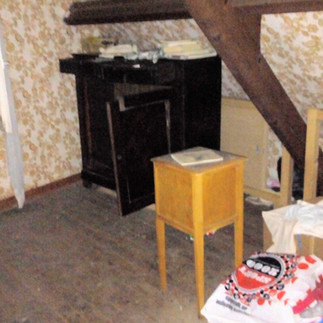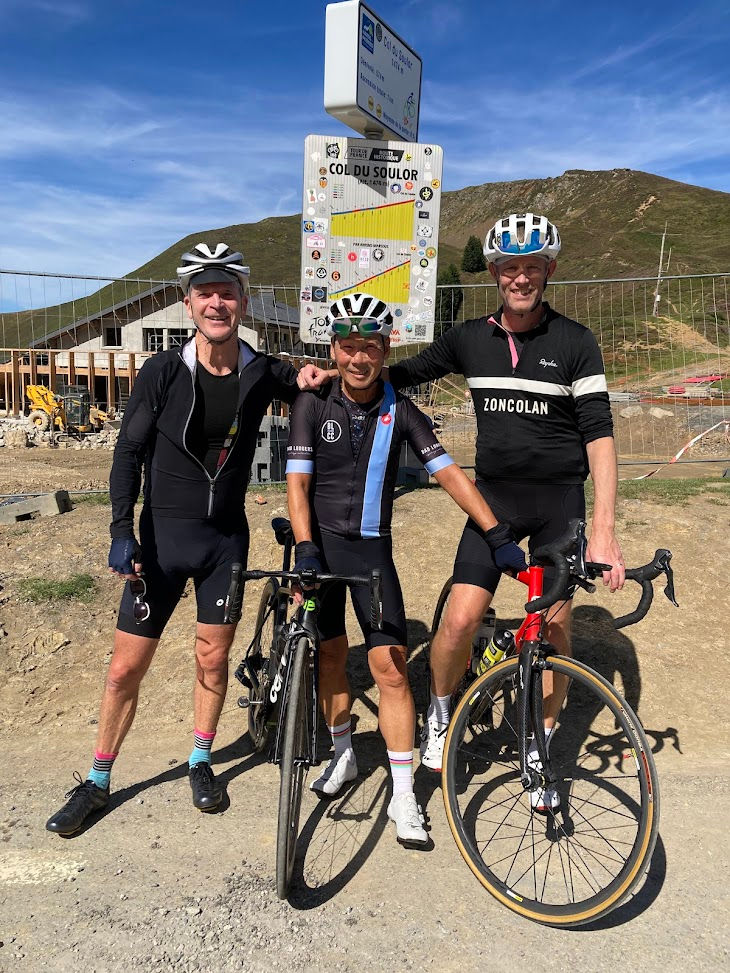Buying the Pyrenees Cycling Centre
- mikedugdale
- Feb 6
- 3 min read
Well, it wasn't a cycling centre of course. It was a large building, in need of total renovation, somewhere in the vicinity of Bagnères de Bigorre (known as Bagnères as distinct from nearby Bagnères de Luchon which is known as Luchon). I just didn't know which one at the time.
Why Bagnères de Bigorre? An easy answer: The Col du Tourmalet, Col d'Aspin, Col d'Aubisque, Col du Peyresourde and on, and on...
The internet came to the rescue of course and after rejecting almost a handful of other buildings because I couldn't afford them, I found the one. In a small village just outside Bagnères, called Germs-sur-l'Oussouet, an abandoned B&B, village bar and épicerie in need of some love.
My first visit to the house was in February 2018 in the company of an estate agent lady who couldn't believe her luck that someone was viewing a building that had been empty for 15 years and was just taking up web-site space.
It wasn't a pretty sight as you can see from the photos I took that day but I had a suspicion it was in the right place (only time will tell if that was correct of course.) and its potential was very obvious, if well disguised.
It's at the head of a steep valley with the l'Oussouet stream running through it. The Pyrenees Cycling Centre sits on the west bank of the stream just by the last road turning that leaves the valley. Everything uphill from us is cul-de-sac or accessible only on foot, preferably with ropes.
The lovely thing about where we are, from a cyclists point-of-view, is that our road home is largely flat(ish) for the last few kilometres – the perfect warm down for tired legs.
You might have heard that French bureaucracy is a nightmare. That's never been my experience. I'm not saying there isn't a lot of it, there might be, but they are very good at it. Once the buyer and seller have agreed a price for the house, via the agent (for which he/she will accept a fee of around 10% so if you're looking for a house, look for one on which the seller is paying the agent), the deal goes off to a Notaire. The Notaire represents both parties AND the French government which means there is almost no to-ing and fro-ing between lawyers, costing everybody more money. You sign a Compromis de Vente (an agreement to proceed) at a very early stage whereupon you pay 10% of the purchase price and three months later you sign the Acte Final (Completion) by which time the balance must have been paid to the Notaire. It really is easy.
The sort of thing that can go wrong is if the building you're buying is full of the junk of someone else's life, long abandoned, which they agreed to empty at the signing of the Compromis de Vente but don't actually even attempt. Luckily, I borrowed the key from the agent to look at the house again the morning before signing the Acte Finale and discovered that the house had not only not been cleared, it had been ransacked. It's hard to say it had been vandalised because our first task on moving in would be to trash almost everything in the building, taking down walls, ceilings and removing all wiring and plumbing, however, it most certainly hadn't been cleared. I mentioned it to the agent, showed her some photos and she went ballistic. So did the Notaire and this is where having one lawyer, acting sort of like a referee, really works. He informed the seller that there would be a daily fine imposed if it wasn't emptied before my next scheduled visit (not for 5 weeks). I'll let you know how that went in another instalment.
Anyway, we now had a building that would one day become The Pyrenees Cycling Centre. I hope the photos give you some idea of where it all started.






























